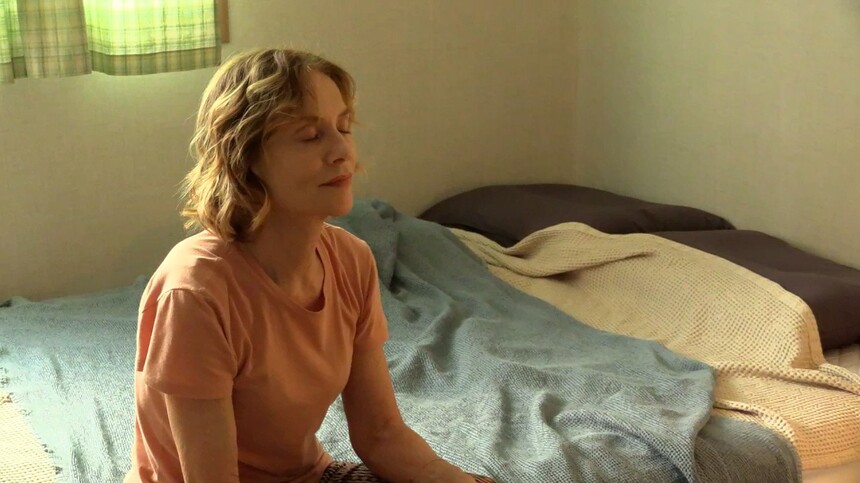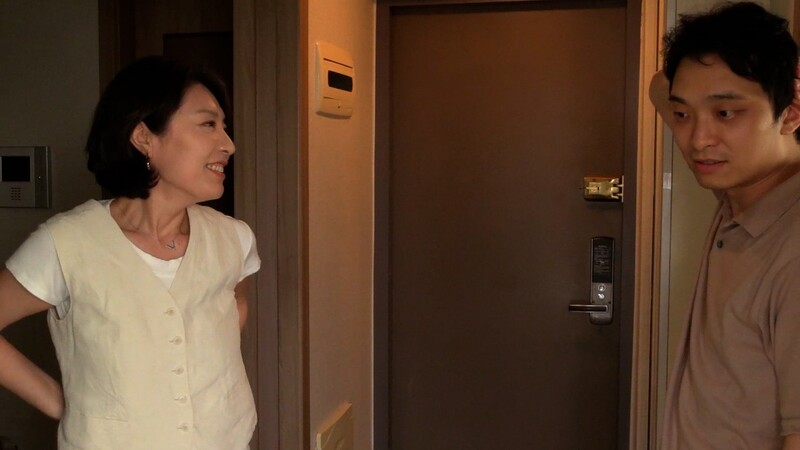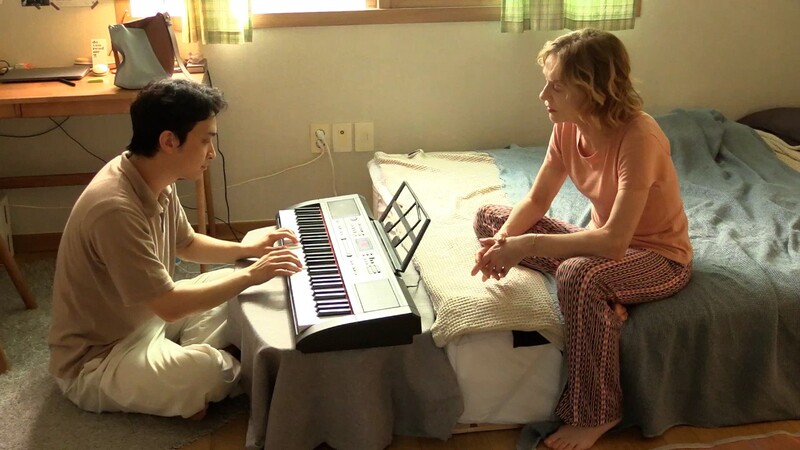Berlinale 2024 Review: A TRAVELER'S NEEDS, Hong Sangsoo's Minimalist Odyssey of Connection and Wonder
Hong Sangsoo and Isabelle Huppert reunite to explore themes of existential wanderlust and the complexity of human connections.

In the realm of minimalist cinema, the name Hong Sangsoo stands out with a singular distinction.
The South Korean auteur's newest film, A Traveler's Needs, features the formidable Isabelle Huppert, reuniting the pair following their 2017 collaboration on Claire’s Camera. This film made its debut at the 74th Berlin International Film Festival, where it garnered the prestigious Silver Bear Grand Jury Prize. This accolade signifies yet another high point in Sangsoo’s illustrious career, particularly noteworthy given that, for the past five years, the Berlinale has unveiled a new film from Sangsoo annually.
A Traveler's Needs weaves the story of Iris, a wandering French woman played by Huppert, who finds herself lost in Korea. Aimlessly, she assumes the position of a French tutor, adopting unorthodox teaching techniques that obscure the boundaries between the professional and the personal.
Imbued with Sangsoo's hallmark storytelling, the film delves into themes of existential yearning, the search for connection, and the tranquility discovered in life's simplest pleasures, such as the routine enjoyment of makgeolli. This exploration is rendered with a meticulous attention to the minutiae of human interaction and emotion, characteristic of Sangsoo's approach.
In their third collaboration within the director’s extensive oeuvre of 31 films, Hong Sangsoo and Isabelle Huppert continue to redefine the parameters of minimalist DIY cinema. Huppert’s portrayal of her character, particularly through her unique approach to tutoring and her introspective solitude, captures the core of Sangsoo's storytelling philosophy: uncovering depth within the mundane.
A Traveler’s Need emerges as a dialogue-heavy, 90-minute contemplation that seems to rely heavily on improvisation. This shift not only showcases the flexibility of Sangsoo’s directorial style but also highlights Huppert's versatile acting prowess, further enriching the collaborative dynamic between director and actor.
Despite the presence of a prepared script, Isabelle Huppert’s performance, characterized by her spontaneous delivery and awkward pauses — especially notable in her interactions with a married couple involved in the film industry (Sangsoo regulars Lee Hyeyoung and Kwon Haehyo) — hints at a more liberated approach to the screenplay. The dialogue’s apparent unpolished nature embodies Sangsoo's overarching cinematic philosophy: to capture life’s transient moments within the meticulously crafted bounds of a movie. This technique reinforces the authenticity and immediacy of the film's narrative, aligning with Sangsoo's intent to mirror the intricacies and imperfections of real life.
In contrast to the more experimental and metatextual In Water, Sangsoo's latest work leans towards a more traditional form of storytelling, albeit one shrouded in the enigma of its central character. The backstory of Huppert's character, Iris, is left intriguingly unexplained, as is her affinity for an unconventional teaching method that more closely resembles therapy sessions than traditional lessons.
This approach allows her to both fascinate and frustrate her students with a series of peculiar questions. This deliberate ambiguity adds layers to the narrative, inviting viewers to engage deeply with the character's motivations and the subtleties of her interactions, thus enhancing the film's mystery and appeal.
A Traveler's Needs emerges as Hong Sangsoo's unique reinterpretation of Teorema and the classic narrative motif of a stranger who turns lives upside down. However, Iris does not incite dramatic transformations in the individuals she encounters; rather, her influence is akin to a subliminal nudge, originating from the nuances of translation and the subtle shifts in meaning that occur when moving from one language to another.
The film takes a discernible turn in its final act, revealing that Iris has been improvising with her living situation, ultimately taking up residence in a young boy’s apartment. The dynamics of their relationship maintain a level of estrangement, and a palpable tension arises when the boy's mother visits, uncovering the unconventional living arrangement. This development adds an intriguing layer to the narrative, exploring the complexities of human connections and the unexpected consequences of our interactions.
A Traveler’s Needs expands Hong Sangsoo’s exploration of minimalist cinema to delve into themes of belonging and language. Uniquely, the film shifts the perspective from that of a foreigner learning to navigate the intricacies of a new culture to that of locals adjusting to the presence of a stranger among them.
This narrative choice places equal emphasis on the dynamics of relationships and the nuances of language, underscoring how communication and connection are navigated and renegotiated in the context of cultural and personal boundaries. The film meticulously examines the reciprocal impact of the stranger and the local community on each other, thereby enriching its exploration of interpersonal and linguistic themes.









